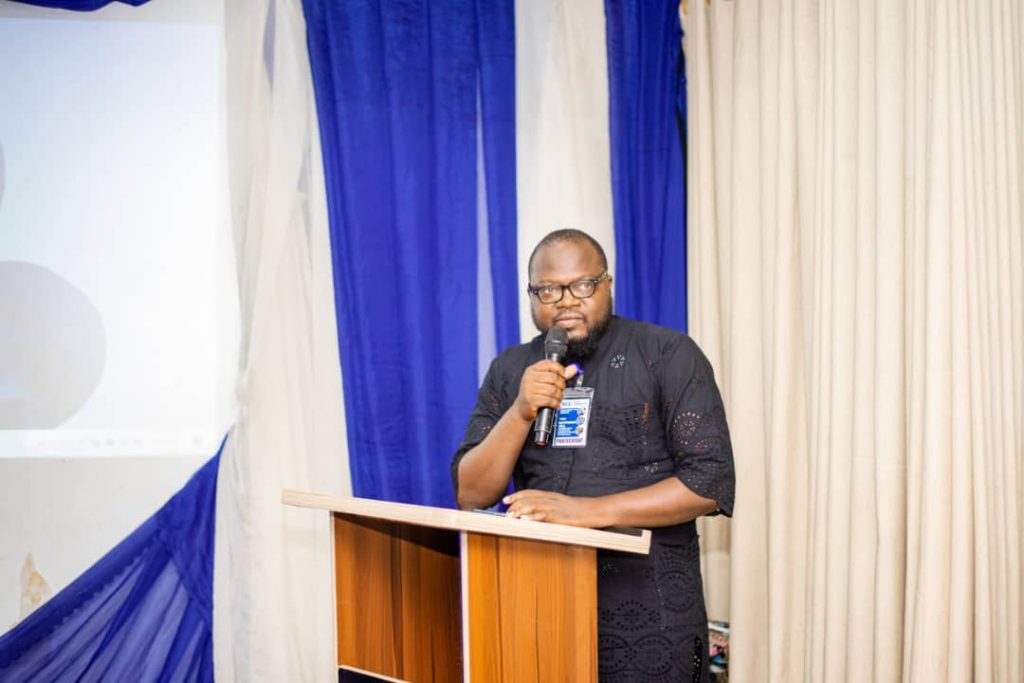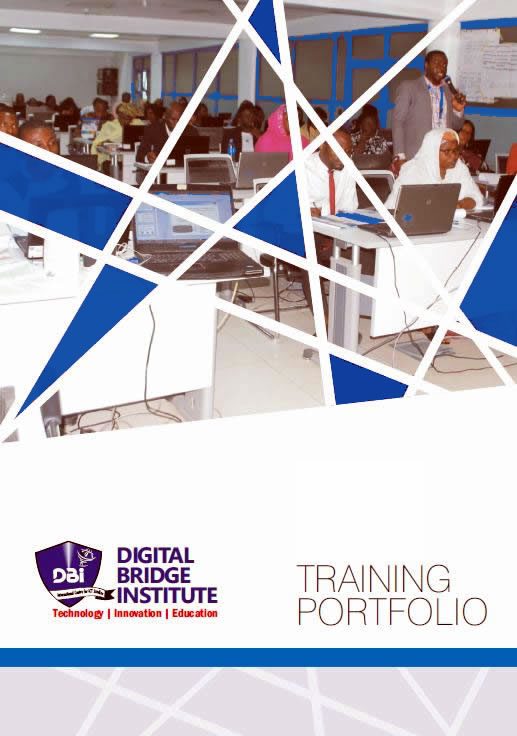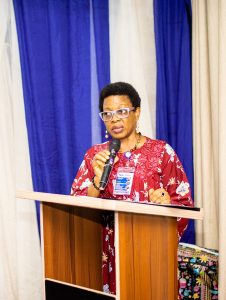
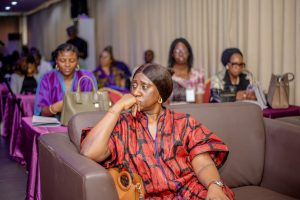
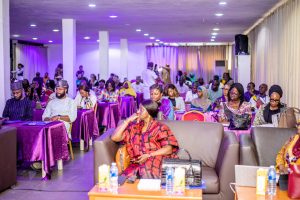
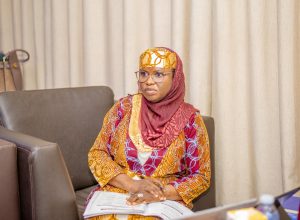
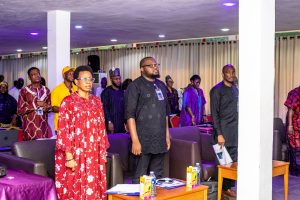
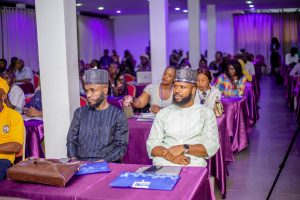
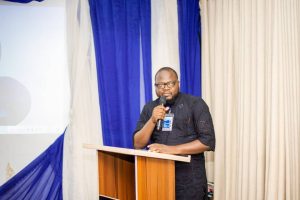
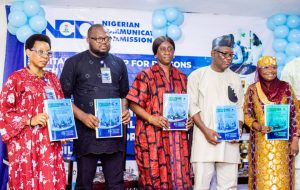
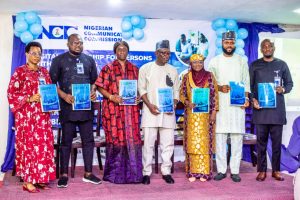
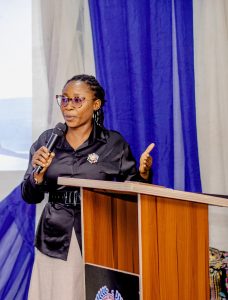
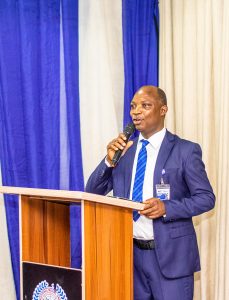
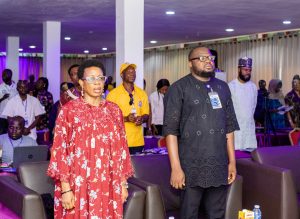
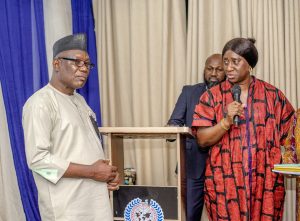
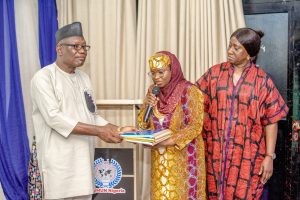
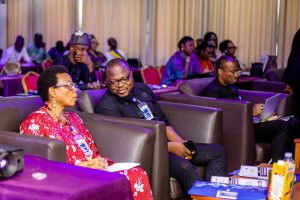
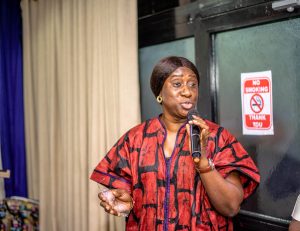
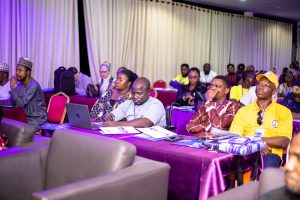
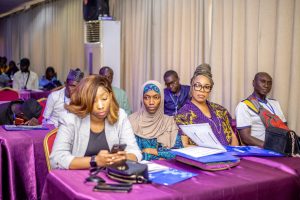
DBI President makes case for 27 million persons with disabilities
… Calls for Policy Framework to tackle barriers
The President/CEO, Digital Bridge Institute (DBI), Mr. David Daser, on Thursday, called for a policy framework to tackle all barriers and impediments against the over 27 million Nigerians with disabilities to access digital education and gain good and quality employment.
Daser, who was speaking at a sensitization workshop on: “Digital Citizenship for Persons with Disability,” organized by the Nigerian Communications Commission (NCC), in Abuja, emphasized that the over 27 million Nigerian with disabilities (PWD) should not be left behind as digital technologies become central to education, employment, governance, and health.
According to him, it is very imperative that no one is left behind, “especially the over 27 million Nigerians with disabilities, as we shape Nigeria’s digital future.”
Giving a goodwill address on: “Empowering All: Advancing Digital Citizenship and Inclusion for persons with disabilities,” the DBI President called for immediate removal of all structural and systemic barriers to full participation of persons with disabilities through disability-aware policy framework and other initiatives.
Daser commended the NCC for convening the critical sensitization workshop on digital citizenship and inclusion for persons with disabilities. He added that as the founding institution behind the Digital Bridge Institute, the commission has continued to demonstrate not just regulatory foresight, but a human-centered commitment to national development.
He said: “Empowering PWDs in the digital space means not only providing access to technology but also ensuring that they have the skills, support systems, and confidence to thrive as equal digital citizens. Whether it’s through accessible user interfaces, screen readers, inclusive content design, or disability-aware policy frameworks, we must remove the structural and systemic barriers to full participation.
“This is not charity. It is not a favour. It is justice. Inclusion is a shared responsibility. The regulators, the educators, the private sector, and civil society must all lean in.”
He pointed out that at the DBI, the mission has always aligned with this vision, adding, “We are not merely a training institution, we are a bridge to inclusion. Through our partnership with organisations such as Sightsavers, we have actively integrated disability inclusion into our digital skills programmes. We have seen firsthand how adaptive technologies, inclusive learning designs, and policy-level engagement can transform lives.”
However, he advised all the stakeholders in this initiative to go further, even as he reminded them that inclusion is not an option, but an obligation.
Daser said: “At DBI, we are proud of the work we’ve done in this space. Our partnership with organisations such as Sightsavers has allowed us to develop and deliver digital skills programmes tailored specifically to persons with disabilities. From inclusive content design to accessibility-focused training environments, we have seen what is possible when intention meets expertise.
“But more than that, our experience has given us a unique vantage point and I say this with all humility, DBI stands today as one of the leading institutions in Nigeria when it comes to implementing inclusive digital training and sensitisation programmes. Our track record is proven, and our capacity is scalable.
“Empowering all means leveraging the best tools and institutions available. DBI is ready, and well-positioned, to serve as a hub for innovation, inclusion, and human capital development in the digital age.”
In her speech, the NCC Director of Economy, Mrs Olatokunbo Oyeleye said the worshop provided the opportunity to learn and plan, and not to just gather together but to really engage.
She added that digital skill is required in all facet of lives and human endeavours. She advised the participants to take something home to improve and impact on the people living around them and their environment.
The NCC donated books on digital citizenship, about 100 copies to the Persons with Disabilities Commission.
Also speaking, the Executive Secretary, National Commission for Persons with Disability, Ayuba Burkin Gufwan, commended the leadership of NCC for their forward-thinking initiative aimed at bridging the digital divide and enhancing the active participation of persons with disabilities in the digital ecosystem.
He, however, faulted the non-inclusion of the blind among them in the workshop by the consultant, claiming that the blind too can now use computer effectively.
SOJI-EZEKIEL FAGBEMI
Manager, Public Affairs, DBI.
